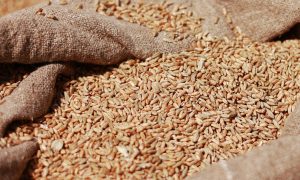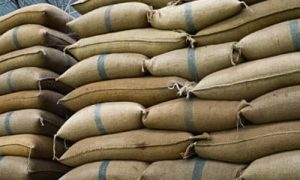Lahore : Flour millers reject Punjab’s wheat stocking requirement

Flour millers in Punjab have rejected the government’s order to stock 25% of their grinding capacity in wheat, calling it financially unfeasible and harmful to the industry. PFMA leaders warned that forced compliance could lead to mill closures and hurt farmers. They urged the government to reconsider the directive and provide financial support if stockholding is mandated.
LAHORE: Flour millers have rejected the Punjab government’s directive requiring mills to purchase 25 percent of their grinding capacity in wheat and store it in their godowns, alleging that the policy is intended to enable government officials to interfere in the milling process for personal gain.
“This condition goes against the terms of reference that were mutually agreed upon in earlier joint meetings between the government and the flour milling industry. It is not feasible for mills to maintain wheat stocks equivalent to 25 percent of their grinding capacity due to financial constraints and varied storage capacities,” said Asim Raza Ahmad, group leader of the ruling faction in the Pakistan Flour Mills Association (PFMA).
Flanked by other millers from across Punjab, Ahmad further explained that many flour mills either do not operate through banks or lack the financial resources to maintain such large stocks, even if they have sufficient storage capacity. “If the government wants mills to hold these stocks, it should provide financial assistance for the purchases,” he added.
He also expressed concern over the unrest among millers caused by the directive and the pressure exerted by special supervisory teams formed by the Director General Food, Punjab, to enforce compliance.
The PFMA leaders reiterated their support for farmers, noting that the industry had offered to purchase over 1.5 million tonnes of wheat to support producers with fair pricing. However, Ahmad emphasized that mills should be free to procure wheat based on their operational requirements and financial capacity. “If the government imposes this condition by force or suspends licenses, it will lead to mill closures. Already, only 55–60 percent of Punjab’s 1,150 flour mills are currently operational,” he warned.
Asim, a former PFMA Central Chairman also highlighted that several mills which secured bank loans last season suffered heavy losses and went bankrupt. He refuted the government’s claim that the new policy was introduced with the industry’s consultation, calling it misleading.
He urged the government to revisit its decision, warning that such restrictions would not only harm the milling industry but also adversely affect farmers who already endured losses in the previous season.
To Read more about Wheat News continue reading Agriinsite.com
Source : Business Recorder

















